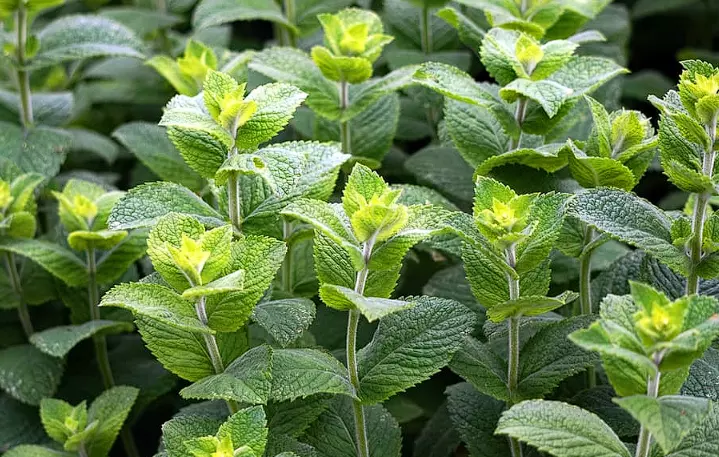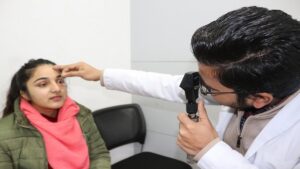
Many people are interested in natural remedies for promoting hair growth and preventing hair loss. One option that has been used for centuries is medicinal plants. These plants contain various compounds that can improve hair health and stimulate hair growth, without the use of harsh chemicals or medications.
In this article, we will discuss five of the best medicinal plants that you can grow at home to promote hair growth and improve hair health. We’ll cover the benefits of each plant, how to use them, and potential side effects.
Medicinal Plants for Hair Growth
Medicinal plants have been used for centuries to treat a variety of ailments, including hair loss. These plants contain compounds that can promote blood flow to the scalp, nourish the hair follicles, and protect the hair and scalp from damage.
Using these plants for hair growth is a natural and safe alternative to chemical treatments and medications. Many of these plants are easy to grow at home, making them an affordable and convenient option for improving hair health.
Aloe Vera
Benefits of each plants Aloe vera is a succulent plant that is widely used in skincare and hair care products. It contains enzymes that can promote hair growth by removing dead skin cells from the scalp and unclogging hair follicles. Aloe vera also contains vitamins and minerals that can nourish the hair and scalp, reducing hair damage and breakage.
To use aloe vera for hair growth, simply apply the gel from the plant directly to the scalp and hair. Leave it for 30 minutes before washing it with a shampoo. Aloe vera is generally safe for all hair types, but it may cause an allergic reaction in some people.
Peppermint
Peppermint is a fragrant herb that can stimulate hair growth by increasing blood flow to the scalp. It contains menthol, which has a cooling effect on the scalp and can promote hair growth by improving circulation. Peppermint also has antibacterial and antifungal properties, which can help prevent scalp infections that can lead to hair loss.
To use peppermint for hair growth, steep a handful of fresh or dried leaves in hot water for 30 minutes. Strain the liquid and use it as a rinse after washing your hair. You can also mix peppermint oil with carrier oil, such as coconut or olive oil, and massage it into your scalp. Peppermint is generally safe for all hair types, but it may irritate some people.
Rosemary
Rosemary is an herb used for centuries to promote hair growth and prevent hair loss. It contains antioxidants that can protect the hair and scalp from damage, as well as anti-inflammatory properties that can soothe an irritated scalp. Rosemary oil has also been shown to improve hair thickness and growth rate.
To use rosemary for hair growth, steep a handful of fresh or dried leaves in hot water for 30 minutes. Strain the liquid and use it as a rinse after washing your hair. You can also mix rosemary oil with carrier oil and massage it into your scalp. Rosemary is generally safe for all hair types, but it may cause an allergic reaction in some people.
Lavender
Lavender is an herb that is well-known for its relaxing properties, but it can also promote hair growth. Like peppermint, lavender contains compounds that can increase blood flow to the scalp, promoting hair growth. Lavender also has antifungal and antibacterial properties that can help prevent scalp infections that can lead to hair loss.
To use lavender for hair, mix a few drops of lavender oil with a carrier oil and massage your scalp. You can also add a drops of lavender oil to the shampoo or conditioner. Lavender is generally safe for all hair types, but it may cause an allergic reaction in some people.
Ginseng
Ginseng has been used in traditional medicine for 1000 of years. It contains compounds called ginsenosides, which can improve blood flow and stimulate hair growth. Ginseng also has antioxidant and anti-inflammatory properties, which can protect the hair and scalp from damage.
To use ginseng for hair growth, you can take ginseng supplements or use ginseng shampoo and conditioner. You can also mix ginseng powder with a carrier oil and massage it into your scalp. Ginseng is generally safe for all hair types, but it may interact with certain medications.
Conclusion
Medicinal plants can be a safe and effective way to promote hair growth and improve hair health. Aloe vera, peppermint, rosemary, lavender, and ginseng are just a few of the many plants that have been used for centuries to treat hair loss and promote healthy hair growth. When using plants, it’s important to start with a small amount and monitor for any allergic reactions or side effects. If you’re unsure about using medicinal plants for hair growth, consult with a healthcare provider.




